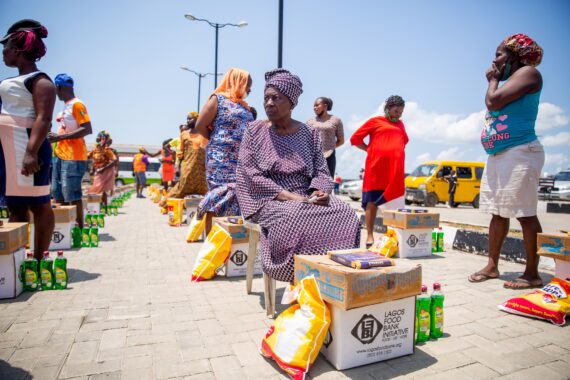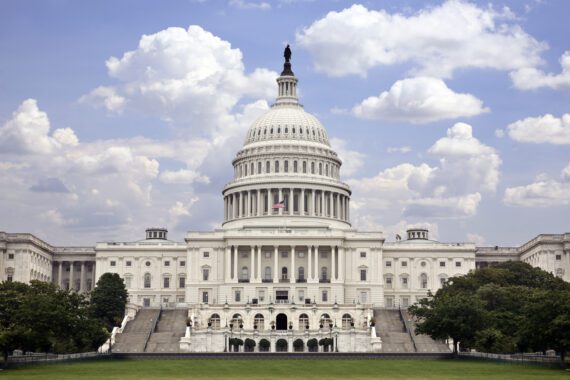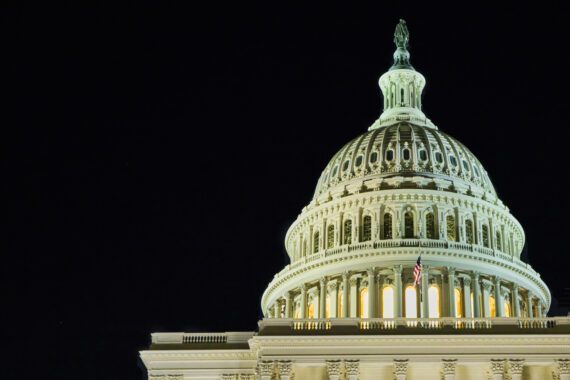World Humanitarian Day (WHD), August 19, is a sober reminder that conflict, climate change, and other global problems impact everyone, including people at risk of hunger, people committed to serving victims and survivors, and people working to keep their neighbors and communities safe.
August 19 is also a celebration of the courage and resilience of people trying to survive a war or rebuild their lives after a natural disaster as well as those who risk their own safety to help them. Each year, WHD focuses on a theme to bring together communities to advocate for the well-being of people affected by crises and for the safety of aid workers. This year’s theme is “It takes a village.”
Through the biblical story of the Samaritan, we learn that mercy, compassion, generosity, and hospitality can restore the human dignity of an anonymous girl, boy, woman, or man abandoned at the side of the road and urgently in need of help. WHD celebrates today’s Samaritans—people around the world who sacrifice time with their loved ones and often put their lives at risk to bring lifesaving assistance and hope to people who are suffering.
Bread members’ commitment to act, pray, and give helps ensure the passage of U.S. policies and programs aimed at ending hunger. Bread supports measures that enable people living with hunger and humanitarian workers to continue to look ahead and see a path to food security, dignity, and peace.
The United Nations Office for the Coordination of Humanitarian Affairs (OCHA) manages the events around World Humanitarian Day, which was established to commemorate the 22 humanitarian workers killed in an attack in Iraq on August 19, 2003. Among the dead was Sergio Vieira de Mello, the UN Secretary-General’s Special Representative for Iraq.
Humanitarian work remains dangerous. Several factors contribute to the higher death and injury tolls among aid workers that we see today. The first is a matter of numbers: more armed conflict around the world has led to record numbers of people who need assistance. This, in turn, puts more humanitarian workers in the field, often in isolated areas. Second, armed groups often splinter into smaller and smaller factions, each of which poses a threat to civilians and aid workers.
Third, there is growing disregard for international humanitarian law and principles. Historically, humanitarian organizations have been seen as neutral parties that should be respected because they are there to help people regardless of “whose side they’re on.” Today, sometimes the reverse seems to be true: hospitals and food distribution sites are targets, seen as enabling the enemy to continue fighting.
Attacks on aid workers in 2021 (the most recent data available) were deadlier than in any year since 2013: 141 reported fatalities. In addition, 203 humanitarian workers were wounded and 117 were kidnapped. South Sudan remained the most violent context for aid workers, followed by Afghanistan, Syria, Ethiopia, and Mali. In April 2023, several aid workers were killed in the first month of the war in Sudan, including three WFP employees on the second day of the conflict.
Humanitarian assistance groups reported that fighting erupted in Sudan’s capital city, Khartoum, on April 15, 2023. Armed conflict between the Sudanese Armed Forces and the paramilitary Rapid Support Forces quickly spread across the country. Nearly a million people were displaced in just the first month of the war–730,000 people within the Sudan and more than 200,000 in neighboring countries. By August 2, displaced people and refugees exceeded 3 million.
Through an ongoing breakfast briefing series at Bread, we have been listening, learning, and lifting up the voices of humanitarian workers and the people they serve in hunger hotspots such as Haiti, Cox’s Bazar in Bangladesh, Honduras, and Mali. As we have heard, humanitarian workers in-country are faced with challenges that include resource constraints, risks to their personal safety, and the emotional toll of witnessing widespread human suffering.
We hope to continue to lift up voices from the 18 current hunger hotspots, which include 22 countries. Their stories inspire Bread members and coalition partners to continue our advocacy for policies, such as those in the U.S. farm bill, that will save lives and help people rebuild their communities.
Learn more about how all people can celebrate World Humanitarian Day 2023—before, on, and after August 19—on the campaign’s website. Materials include suggested actions, updates, and more.
Abiola Afolayan is co-director, Policy and Research Institute, with Bread for the World.



